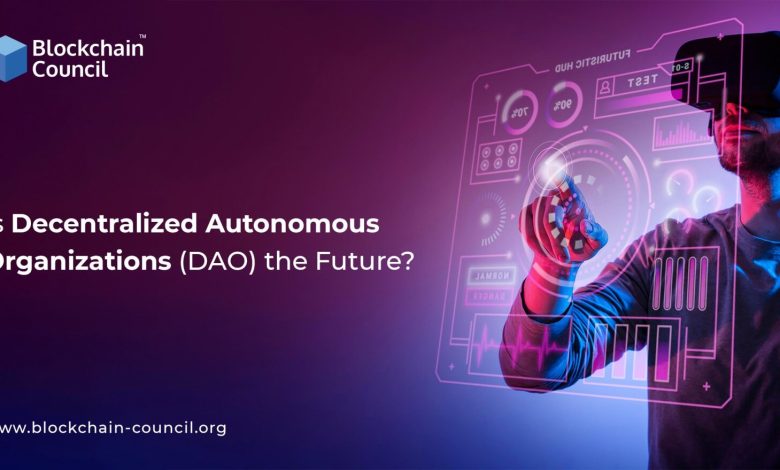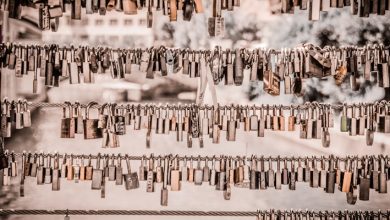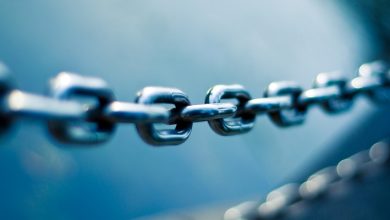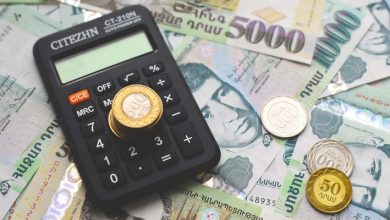The Future of Decentralized Autonomous Organizations (DAOs)

- Understanding the concept of Decentralized Autonomous Organizations (DAOs)
- The rise of DAOs in the era of blockchain technology
- Challenges and opportunities for DAOs in the future
- Exploring the potential applications of DAOs across industries
- Governance models for effective decision-making in DAOs
- The role of smart contracts in the functioning of DAOs
Understanding the concept of Decentralized Autonomous Organizations (DAOs)
Decentralized Autonomous Organizations (DAOs) are a revolutionary concept in the world of blockchain technology. DAOs are essentially organizations that operate without the need for centralized control or management. Instead, they rely on smart contracts and blockchain technology to automate decision-making processes and governance structures.
DAOs are designed to be transparent, secure, and autonomous. They allow for the creation of decentralized systems that can operate without the need for intermediaries or third parties. This makes them highly efficient and cost-effective, as they eliminate the need for traditional hierarchical structures and bureaucratic processes.
One of the key benefits of DAOs is their ability to enable trustless collaboration among participants. By using blockchain technology, DAOs can ensure that all transactions and decisions are recorded on a public ledger that is immutable and transparent. This helps to prevent fraud and corruption, as well as reduce the risk of human error.
Overall, DAOs have the potential to revolutionize the way organizations are structured and operated. By leveraging blockchain technology and smart contracts, DAOs can create a new paradigm of decentralized governance that is more efficient, transparent, and democratic. As the technology continues to evolve, we can expect to see DAOs play an increasingly important role in shaping the future of organizations and governance.
The rise of DAOs in the era of blockchain technology
Decentralized Autonomous Organizations (DAOs) are gaining momentum in the era of blockchain technology. These organizations operate through smart contracts on the blockchain, allowing for transparent and autonomous decision-making processes. DAOs are revolutionizing traditional business models by eliminating the need for intermediaries and enabling direct peer-to-peer interactions.
One of the key advantages of DAOs is their ability to foster a more inclusive and democratic governance structure. Members of a DAO can participate in decision-making processes regardless of their geographical location or background. This decentralized approach promotes transparency and reduces the risk of corruption or manipulation.
Furthermore, DAOs are highly resilient to censorship and external interference due to their distributed nature. This makes them ideal for projects that require a high level of security and trust among participants. As a result, DAOs are increasingly being used in various industries, including finance, governance, and supply chain management.
As the popularity of blockchain technology continues to grow, we can expect to see a rise in the number and complexity of DAOs. These organizations have the potential to disrupt traditional centralized structures and empower individuals to take control of their own assets and decision-making processes. The future of DAOs looks promising, with endless possibilities for innovation and collaboration in the decentralized economy.
Challenges and opportunities for DAOs in the future
As decentralized autonomous organizations (DAOs) continue to gain traction in various industries, they face both challenges and opportunities in the future. These innovative entities have the potential to revolutionize traditional business models by enabling transparent, efficient, and decentralized decision-making processes.
One of the main challenges facing DAOs is regulatory uncertainty. As governments around the world grapple with how to classify and regulate these new forms of organizations, DAOs must navigate a complex legal landscape to ensure compliance while maintaining their decentralized nature.
Another challenge for DAOs is security vulnerabilities. Due to their reliance on smart contracts and blockchain technology, DAOs are susceptible to hacks and other cyber threats. Ensuring robust security measures will be crucial for the long-term viability of these organizations.
Despite these challenges, DAOs also present exciting opportunities for the future. By leveraging blockchain technology, DAOs can streamline operations, reduce costs, and increase transparency. This can lead to greater trust among stakeholders and foster innovation in various industries.
Furthermore, DAOs have the potential to democratize decision-making and empower individuals to participate in governance processes. This can lead to more inclusive and equitable systems that prioritize the needs and preferences of a diverse range of stakeholders.
In conclusion, while DAOs face challenges in terms of regulation and security, they also hold immense opportunities for transforming traditional business models and governance structures. By addressing these challenges and capitalizing on the opportunities, DAOs can pave the way for a more decentralized and transparent future.
Exploring the potential applications of DAOs across industries
Decentralized Autonomous Organizations (DAOs) have the potential to revolutionize various industries by introducing new ways of organizing and operating. These innovative entities can be applied across a wide range of sectors, offering benefits such as increased transparency, efficiency, and security.
One industry that could greatly benefit from the implementation of DAOs is the finance sector. By utilizing smart contracts and blockchain technology, DAOs can streamline processes such as lending, borrowing, and asset management. This can lead to lower costs, faster transactions, and reduced risk of fraud.
Another area where DAOs show promise is in supply chain management. By creating decentralized networks of suppliers, manufacturers, and distributors, DAOs can improve traceability, accountability, and sustainability in the supply chain. This can help companies meet regulatory requirements, reduce waste, and build trust with consumers.
Furthermore, DAOs can be used in the healthcare industry to improve patient data management, streamline insurance claims processing, and facilitate medical research. By leveraging the security and immutability of blockchain technology, DAOs can ensure the privacy and integrity of sensitive health information while enabling collaboration among healthcare providers.
Overall, the potential applications of DAOs across industries are vast and promising. As more organizations explore the benefits of decentralized autonomous governance, we can expect to see increased innovation, efficiency, and trust in various sectors of the economy.
Governance models for effective decision-making in DAOs
When it comes to governance models for effective decision-making in DAOs, there are several approaches that can be considered. One common model is known as liquid democracy, where token holders can either vote directly on proposals or delegate their voting power to others. This allows for more flexibility and participation in decision-making processes.
Another model is quadratic voting, which aims to address the issue of majority rule by giving more weight to voters who are more passionate about a particular issue. This can help prevent the tyranny of the majority and ensure that decisions are made with the input of those who care most about the outcome.
Some DAOs may also opt for a reputation-based governance model, where voting power is based on a participant’s past contributions to the organization. This can help incentivize active participation and reward those who have a proven track record of making valuable contributions.
Ultimately, the key to effective decision-making in DAOs lies in finding a governance model that strikes the right balance between inclusivity, efficiency, and fairness. By experimenting with different approaches and adapting to the needs of the community, DAOs can create a system that empowers participants and enables them to collectively steer the direction of the organization.
The role of smart contracts in the functioning of DAOs
Smart contracts play a crucial role in the operation of Decentralized Autonomous Organizations (DAOs). These self-executing contracts are coded to automatically enforce and facilitate the terms of an agreement when certain conditions are met. In the context of DAOs, smart contracts are used to govern the organization’s operations, including decision-making processes, fund management, and resource allocation.
By utilizing smart contracts, DAOs can operate in a transparent and trustless manner, as the rules and processes are predefined and executed automatically without the need for intermediaries. This not only increases efficiency but also reduces the risk of human error or manipulation. Smart contracts also enable DAO members to interact directly with the organization’s functions, such as voting on proposals or receiving dividends, without relying on a central authority.
Furthermore, smart contracts provide a level of security and immutability to DAOs, as the code is stored on a blockchain network, making it resistant to tampering or censorship. This ensures that the rules and agreements within the organization are upheld consistently and without bias. Additionally, smart contracts can help DAOs scale and adapt to changing circumstances by allowing for the seamless integration of new features or functionalities.



